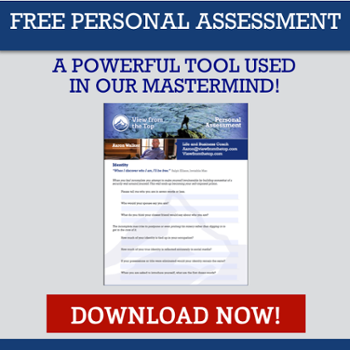
In your career, have you ever failed at a project because you said "Yes" to too much at once? How did it affect the following decisions you made for your team? Did it rob you of the success you looked forward to enjoying with your family?
Business professionals understand the value of the word "No." Through it, people filter through the projects that will profit you versus those that will suffocate your time.
Derek Sivers says, "When deciding whether to do something if you feel anything less than 'Wow! That would be amazing! Absolutely! Hell yeah!' - then say 'no.'" When you say, "No," there isn't a more evident word that expresses that you value your time to achieve massive rewards.
Imagine you're a life coach, and everybody wants a part of your time. Most people have 'simple' problems, and they want you to produce solutions for them. How can you separate the clients who legitimately require your time from those who can handle their issues themselves?
People learn a lot about leaders by what they say "No" to than anything else. They tend to value their team when they're picky about clients. If professionals don't take time to say "No," they can never say "Yes" to the right clients.
It's easier to say "No" to people when you remember the past “Yes’s” that cost you. It's essential to take time with important decisions and get the input of your team. We make naive decisions only when our ambitions are greater than our memories.
When you associate with people, and you're not confident they'll provide the best for you, it's not only vital to make the right decision but know how to navigate, saying "No."
To find a community of professionals who can help you value your relationships to achieve significant profit, visit our website or apply to join one of our mastermind groups online.
Be The Buyer
Dr. Daniel Gilbert from Harvard University conducted a study about personality... specifically about the preferences, attitudes, and how they change over time. Dr. Gilbert found that people can see significant changes in themselves when looking over the past ten years.
Professionals understand the past should serve as essential information and a learning opportunity to allow you to approach life differently. When we grow from our memories, we build towards our future.
Mark Twain says, "Never allow someone to be your priority while allowing yourself to be their option." When you accomplish this, you lift a burden off your shoulders and gain security in relationships.
3 Tips To Achieve Freedom In Relationships
In their book, Who Not How, Dan Sullivan and Dr. Benjamin Hardy describe the process of removing people who take advantage of your time and recognize the "Whos" that'll produce significant success.
1. Develop A Process To Qualify Your Clients
Most people operate in business under the "Dog-Eat-Dog-World" mentality. They ruthlessly get what they want out of life. Therefore, they prioritize a self-centered culture that'll one day bite them in the butt!
We can achieve better results without losing our passion for success. When you treat other people with respect and dignity, you gain back the same rewards. As we create a standard for our clients to work with us, we filter through the "Wheat from the chaff."
Here are a few questions to help qualify challenging clients:
- How can we make it work with the fewest problems possible?
- Do we need to bend our core principles too much to accommodate the wants of this client?
- Will we gain more health and happiness than what we give by working with this client?
2. Get 'Real' With Yourself
When ambitious people work hard on their careers, they often need to hit a dead-end before they reconsider their life decisions. Without a set of core principles to operate in their lives, they'll chase after anyone with money and won't find genuine satisfaction.
Take time to identify your core principles and what motivates you towards your success. Here are some questions to ask yourself:
What do you want to gain from life?
How do you want to be seen by those who'll know you?
What are you no longer willing to do?
What's different about how you'll approach projects in the future?
3. Make 'Future-Thinking' Decisions
Going back to Dr. Daniel Gilbert: he began his research at Harvard by asking students a series of questions. Through these questions, he discovered that people achieve genuine success by how they focus on the future.
Here are a few of the questions he asked his students.
- Are you the same person you were ten years ago?
- Do you see the world the same as ten or even five years ago?
- Are you focused on the same goals?
- Do you have the same priorities?
- How do you spend your time versus how you used to spend your time?
Professionals understand that personal confidence comes when they make progress towards bigger goals than their present capabilities. They achieve this by having a future-thinking mindset. They make decisions by who they want to be in the future instead of making choices in the present.
Evaluate the progress you make and whether it meets your standard of success. Professional athletes obsess over their exercise routine and whether it still gives them the explosive power they need to win games. If one coach isn't cutting it, they find another to meet their needs.
A high-quality professional leads his team to success by valuing their time and relationships when he says "No" to the wrong people and "Yes" to the right clients. Every project you undertake will produce 10x profit, and you'll appreciate the time you've freed up to invest in what matters. When you apply these principles in your life, you'll wonder why you didn't start sooner.
As you work through this, you'll need other professionals who can help you prioritize your "No" to achieve substantial profit. Reach out to us at our website and apply to join one of our mastermind groups online.





